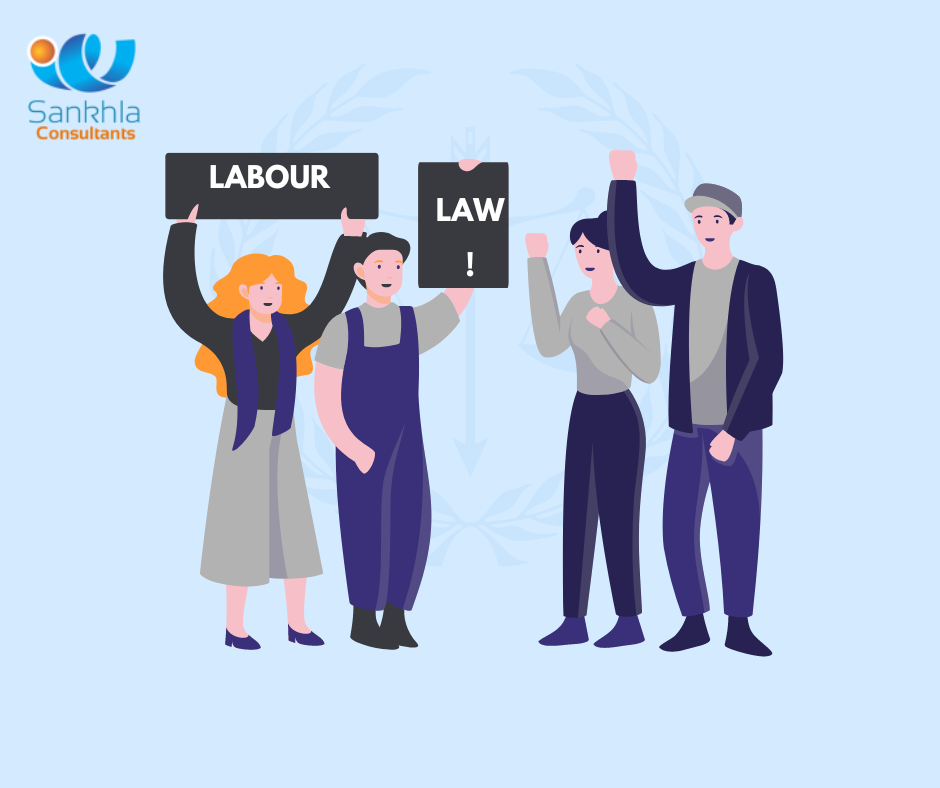In India, labour rules are applicable to all employers, including private businesses. To protect the welfare and rights of its workers, private businesses must abide by a number of labour laws. Some significant issues of Indian labour law related to private firms include:
Employment contracts: Laws pertaining to employment contracts, such as those governing terms and conditions of employment, pay, benefits, working hours, and termination procedures, must be followed by private businesses.
Minimum Wages: In order to guarantee that every employee receives compensation that complies with the law, private businesses must adhere to the minimum pay levels established by applicable labour laws.
Working hours and overtime: Private businesses are required to follow the Factories Act, 1948, and other requirements pertaining to working hours, rest breaks, and overtime compensation.
Working hours and overtime: Private businesses are required to abide by laws pertaining to the Factories Act of 1948 and other pertinent acts concerning working hours, rest breaks, and overtime compensation.
Health and safety: Private businesses must give their workers a safe and healthy work environment, which includes taking precautions to avoid mishaps, guarantee workplace security, and handle health risks. Adherence to the safety rules and the Factories Act of 1948 are necessary.
Maternity perks: Private businesses are required to abide by the Maternity Benefit Act of 1961, which requires them to provide their female employees with maternity leave and other perks.
Social Security and Provident Funds: Under the Employees’ Provident Funds and Miscellaneous Provisions Act of 1952, for example, private businesses may be obliged to make contributions to social security programmes.
Employee Provident Fund (EPF) and Employee State Insurance (ESI): Private enterprises that meet specific qualifying requirements concerning the number of employees and wages paid are mandated to register for the EPF and ESI schemes. These programmes offer workers insurance, retirement benefits, and other social security benefits.
Anti-discrimination laws: A number of anti-discrimination laws and regulations ban private enterprises from treating employees differently on the grounds of gender, religion, caste, race, or handicap.
Employee welfare: Depending on the size and type of the business, private enterprises may be compelled to provide specific employee welfare amenities including canteens, bathrooms, and medical facilities.
Industrial conflicts and grievance redressal: Private businesses are required to abide by the Industrial Disputes Act, 1947, which establishes procedures for collective bargaining and grievance redressal in order to resolve conflicts between employers and employees.

Private businesses must abide by labour regulations in order to protect themselves from lawsuits, preserve positive working relationships, and sustain moral corporate conduct. Labour law violations may lead to fines, penalties, court cases, and reputational harm for the company. Consequently, it is imperative for private enterprises to remain current with pertinent labour rules and regulations and guarantee complete adherence to relevant statutes and guidelines.


My name is Vikash Kumar. I am a confirmed employee of Axis Bank and I do my work operations + business well, but I was off tracked in the mid-year performance rating and was forcibly made to resign.
I have everything against Axis Bank. I was threatened with termination in a psychological manner. I have everything documented
sincerely
Vikash kumar
employee code- 400363
dear sir,
I am working in NCML since August 2023 at Guntur last month 6th was my company transfer anakapalli lf not relocate will resignation kept told my boss.
I was kept resignation notice period 90 days .My boss told notice period serves anakapalli location.
I was requesting old patents recently newly married will serve notice period same location.
my boss Mailed if difficult to go please submit handover and takeover remaining days will be recover was mailed
please give suggestions